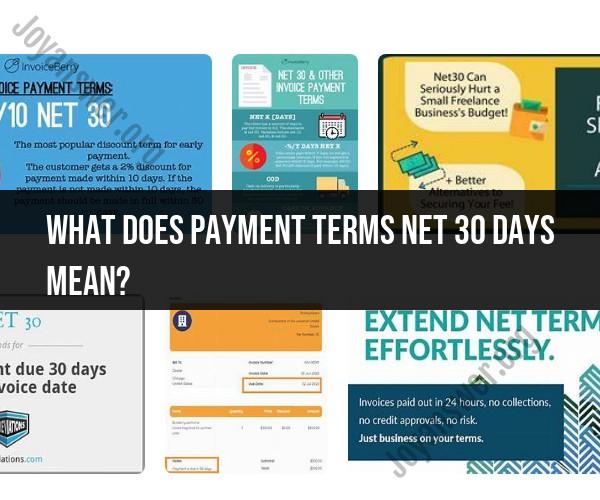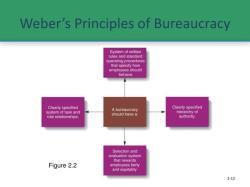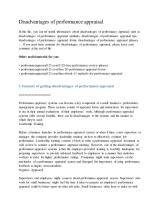What does payment terms net 30 days mean?
The phrase "Payment Terms Net 30 Days" is commonly used in business and financial transactions, particularly in invoicing and trade agreements. It specifies the terms under which payment for goods or services is expected. Here's what "Payment Terms Net 30 Days" means:
Payment Deadline: The term "Net 30 Days" indicates that the payment for the invoice or transaction is due 30 days after the specified invoice date. In other words, the recipient of the invoice has 30 days from the invoice date to make the full payment.
Grace Period: This payment term typically includes a grace period of 30 days during which the payer is not considered late if they make the payment. During this time, no late fees or penalties are usually applied.
Payment Expectation: The sender of the invoice expects the payer to complete the payment within the 30-day period. It's essential for the payer to adhere to this timeframe to maintain a good business relationship and avoid any potential late payment consequences.
Common Usage: "Payment Terms Net 30 Days" is a standard and widely used payment term in business-to-business (B2B) transactions, where companies often extend credit to their customers. It provides a clear and reasonable timeframe for payment, allowing the payer some flexibility while ensuring that the seller receives timely compensation for their products or services.
Variations: While "Net 30 Days" is the most common term, variations like "Net 15 Days" (15-day payment window) and "Net 60 Days" (60-day payment window) exist. These terms are adjusted to suit the specific needs and agreements between the parties involved.
Invoicing and Documentation: Invoices and payment requests should clearly state the payment terms, including the "Net 30 Days" condition. This helps both parties understand when the payment is expected.
Late Payments: If the payer fails to make the payment within the specified 30 days, it may be considered a late payment. Late payments can result in additional charges, such as late fees or interest, as outlined in the terms and conditions agreed upon between the parties.
In summary, "Payment Terms Net 30 Days" is a standard payment arrangement in business transactions, indicating that the recipient has 30 days from the invoice date to make the full payment without incurring penalties. It helps establish clear expectations for when payments are due and supports the smooth flow of commerce between companies.












